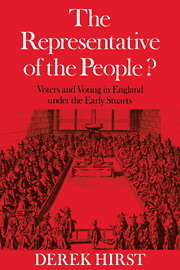Book contents
5 - The urban voters
Published online by Cambridge University Press: 15 December 2009
Summary
The identity of the urban electors was considered by many contemporaries to be of fundamental importance, particularly in terms of their ability to withstand blandishments of various kinds. The richest were vulnerable to considerations of vested interest, the poorest to alcohol or bribes, and election campaigns and draft election bills might be calculated accordingly. The decisions to open the franchises were partly based on the assumption that the many would behave differently from the few. The question is also of obvious interest to modern historians, for it helps to define the extent of the political nation, and hence the exclusiveness or otherwise of society –though of course the leaders of that society may have determined to increase its numbers for quite unprincipled reasons. In addition, it points to continuity or discontinuity between the political activity of the revolutionary decades and those that preceded them.
The account of the franchise disputes, and of the reactions of the House to them, has implied that the urban franchise was a very varied commodity, unlike the uniform 40s. freehold in the counties. There can therefore be no general statement about the social composition of the urban electorate, for it differed from place to place, and from type to type of franchise, which could be based on corporation membership, on freedom to trade, on residence, or even on ownership of the defunct salt pans at Droitwich. Nevertheless, it is possible to be rather more specific about the nature of the voters than it was in the case of the county constituencies, for evidence is more accessible.
- Type
- Chapter
- Information
- The Representative of the People?Voters and Voting in England under the Early Stuarts, pp. 90 - 106Publisher: Cambridge University PressPrint publication year: 1975



